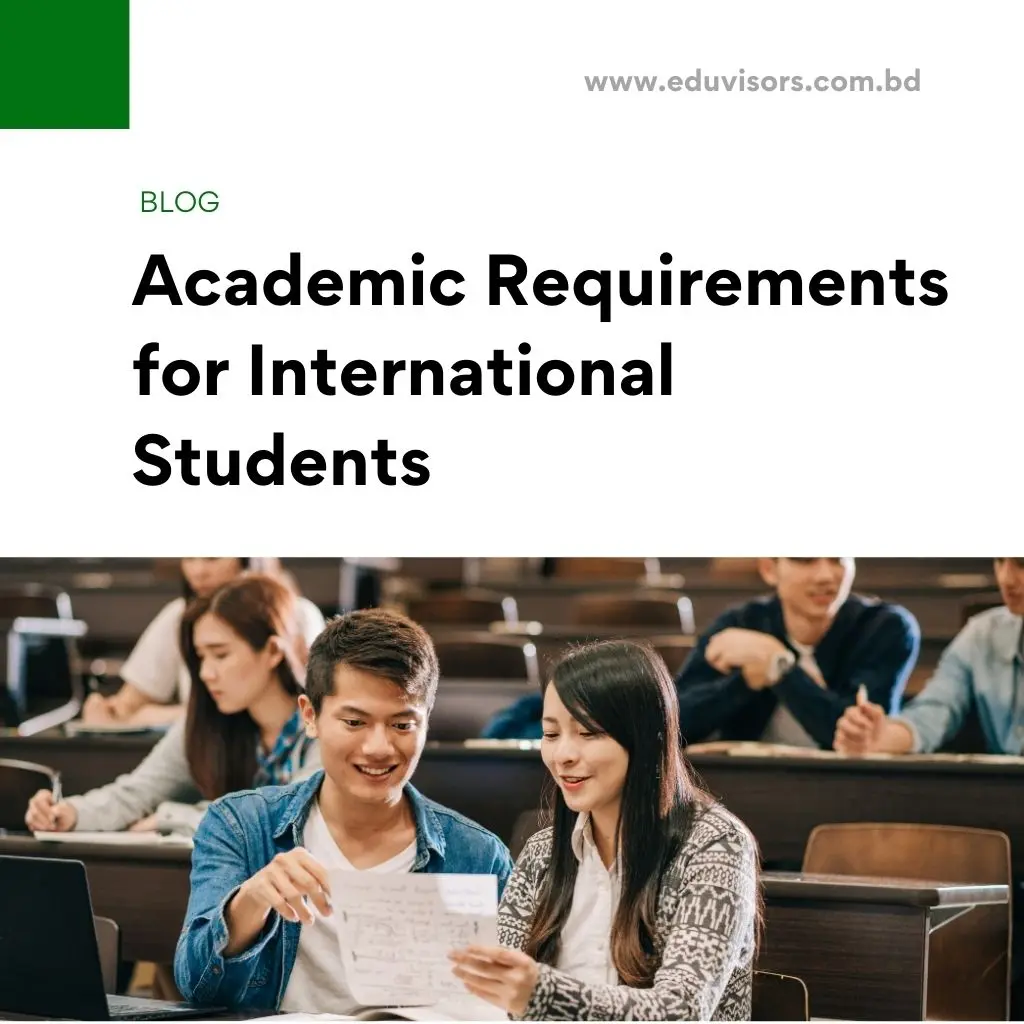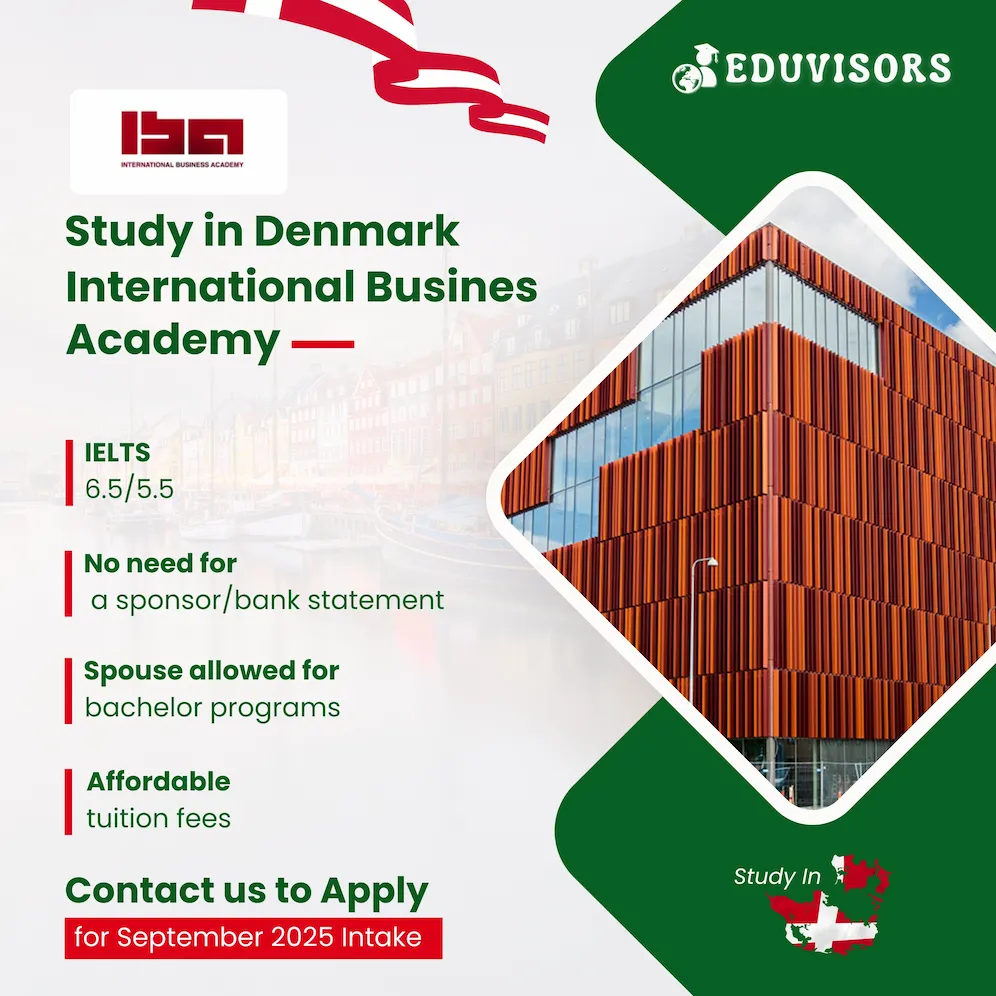Academic requirements for international students vary depending on the country, university, and level of study. Most institutions assess previous academic qualifications, grade point average (GPA), subject relevance, and official transcripts before offering admission. Understanding these academic requirements helps international students choose suitable programs, prepare documents correctly, and improve their chances of acceptance at overseas universities.
Academic Requirements for the Foundation Program
The country and institution may have different entry requirements for international students enrolling in a foundation program. Nonetheless, the following generic specifications are frequently requested:
High School Requirements
International students must usually have finished their home country’s secondary education requirements or equivalent. This could apply to degrees, certifications, or other officially acknowledged credentials.
English Language Proficiency
Evidence of English language proficiency through standardized exams like the TOEFL (Test of English as a Foreign Language), IELTS (International English Language Testing System), or Cambridge English qualifications is required for many foundation programs, particularly in English-speaking nations. Institutions may have different minimum score criteria ranging from 4.5 to 5.5.
Academic Achievement
A high academic record in relevant fields (such as mathematics, sciences, and languages) may be necessary to enter a foundation program; however, precise grade criteria may vary.
Admission Examinations
Some universities mandate that international students take particular admission examinations or tests as part of the application process. These tests may include topics from the foundation program’s curriculum.
Other Documentation
Additional documentation is typically required for international students. This can include a current passport, letters of recommendation, an essay or personal statement, and evidence of their ability to pay for living expenses and tuition.

Academic Requirements for the Pre-Masters Program
International applicants to pre-master programs may have quite different requirements depending on the institution, country, and particular program. But here’s a broad overview of what’s generally needed:
Bachelor Degree
Generally, applicants must have graduated from a recognized university with a bachelor degree or an equivalent credential. The ideal degree would be in a field relevant to the master’s or pre-master’s degree.
Academic Performance
Institutions frequently set a minimum GPA requirement for pre-master program admission. While specific requirements may differ, a solid undergraduate academic record is typically necessary.
English Language Proficiency
Because pre-master programs are typically taught in English, international students may be required to prove their English proficiency using standardized tests such as the International English Language Testing System (IELTS) or the Test of English as a Foreign Language (TOEFL). Each school may have different requirements for specific scores.
Particular Course Requirements
Depending on the pre-master programme and the intended master’s degree, international applicants must meet to complete particular courses or topic knowledge during their bachelor’s studies.
Letters of Recommendation
Some schools may ask for letters from instructors or other experts who provide proof of an applicant’s academic standing and likelihood of succeeding in a pre-master’s program.
Statement of Purpose or Personal Statement
Prospective students may be required to submit a statement explaining their academic history, the reasons behind their decision to enroll in the pre-masters program, their career objectives, and how the program fits those aims.
Additional Documentation
This could include a current passport, evidence of a valid visa, proof that one has adequate funds to pay for living expenses and tuition, and any other documents the school specifies.
Academic Requirements for Undergraduate Program
The educational criteria for international applicants to postgraduate programs vary greatly based on their country, university, and field of study. However, this is an encompassing list of what usually becomes required:
Secondary Education Completion or Equivalent
It anticipates most international students to have accomplished their secondary education requirements. This could include certifications, high school diplomas, or other officially acknowledged credentials.
Academic Performance
Universities frequently impose minimum admission requirements that students must meet, such as a particular GPA or marks in essential subjects related to their bachelor’s program. Strong academic results in disciplines like mathematics, science, and minimum English language are typically preferred.
English Language Proficiency
Meeting the English language requirement is often essential, as many undergraduate programs are taught in English. Standardized tests such as the TOEFL (Test of English as a Foreign Language), IELTS (International English Language Testing System), or comparable assessments are commonly used to illustrate this. The prerequisites for scores may differ across universities.
Standardized Tests
Some universities may require additional standardized examinations, particularly for programs in particular fields of study (e.g., the SAT or ACT for undergraduate entrance in the United States).
Letters of Recommendation
Some academic institutions may request letters from mentors or teachers confirming an applicant’s character and abilities.
Personal Statement
Applicants may need to submit an essay or personal statement outlining their educational background, reasons for selecting that specific program or university, and their future objectives.
Additional Documentation
This could include a valid passport, proof of visa status, bank accounts attesting to the student’s ability to pay for living expenses and tuition, and any other documents the university specifies.
Academic Requirements for the Postgraduate Program
The educational requirements for foreign applicants to postgraduate programs differ significantly depending on your country, university, and study area. That being said, the following is a comprehensive list of what is typically needed:
Secondary Education Completion or Equivalent
The majority of overseas students are expected to have completed their secondary education requirements or an equivalent program. This could apply to high school degrees, certificates, or other recognized credentials.
Academic Performance
Universities frequently impose minimum standards on students, such as a specific GPA or grades in significant topics related to their program of study. Substantial academic achievement in science, math, languages, etc., is usually favored.
English Language Proficiency
Because many postgraduate programs are taught in the language, international students frequently have to prove their English language ability using standardized tests like the International English Language Testing System (IELTS) or the Test of English as a Foreign Language (TOEFL). Institutions may have different requirements for specific scores.
Standardized Examinations
The Graduate Record Examination (GRE) for master’s programs and the GRE/GMAT for business or management programs are two examples of standardized examinations that some postgraduate programs may require, particularly in some nations like the United States.
Letters of Reference
Professors or other experts who have a testimony for an applicant’s accomplishments, academic skills, and potential for success in the postgraduate program may be requested to write letters of recommendation for them.
Statement of Purpose or Personal Statement
Many universities ask prospective students to send a statement outlining their academic background, areas of interest in research, professional objectives, and how the postgraduate program fits those aims.
Prior Research or Job Experience
Certain programs may prioritize prior research or pertinent job experience in the field, and they may request supporting materials or a CV that highlights these experiences.
Additional Documentation
This could include a current passport, proof of visa, bank accounts proving you can afford living expenses and tuition, or any other paperwork the university specifies.
Academic Requirements for the Diploma Program
Depending on the nation, the school, and the particular diploma program, there may be differences in the academic prerequisites for overseas students applying to diploma programs. Nonetheless, the following general educational prerequisites are frequently requested for diploma programs:
Secondary Schooling or Equivalent
Generally speaking, foreign school admission requires a certificate of secondary education. This could be a certificate, high school diploma, or an equivalent credential from their nation of origin.
Minimum Academic Performance
Schools with diploma programs could have specific requirements for students’ grades in related areas or a minimum GPA.
English Language Proficiency
Depending on the language of teaching, international students may be required to prove their ability in the language used for the diploma program. Tests of English as a Foreign Language (TOEFL) and the International English Language Testing System (IELTS) provide excellent ways to demonstrate this, particularly if the program is taught in English.
Particular Subject Requirements
To be eligible for specific diploma programs, applicants may need to have completed particular courses or subjects in their secondary education related to the program they intend to follow.
Additional Documentation
This could be a current passport, documentation for a visa, evidence that you have the funds needed to pay for living expenses and tuition, or any other documents the school asks for.
These additional requirements fundamentally serve as an umbrella language, enabling the opportunity for various learning environments. They represent eligibility and the initial strokes of a vibrant canvas representing cross-cultural study and exchange for students from other nations.

















